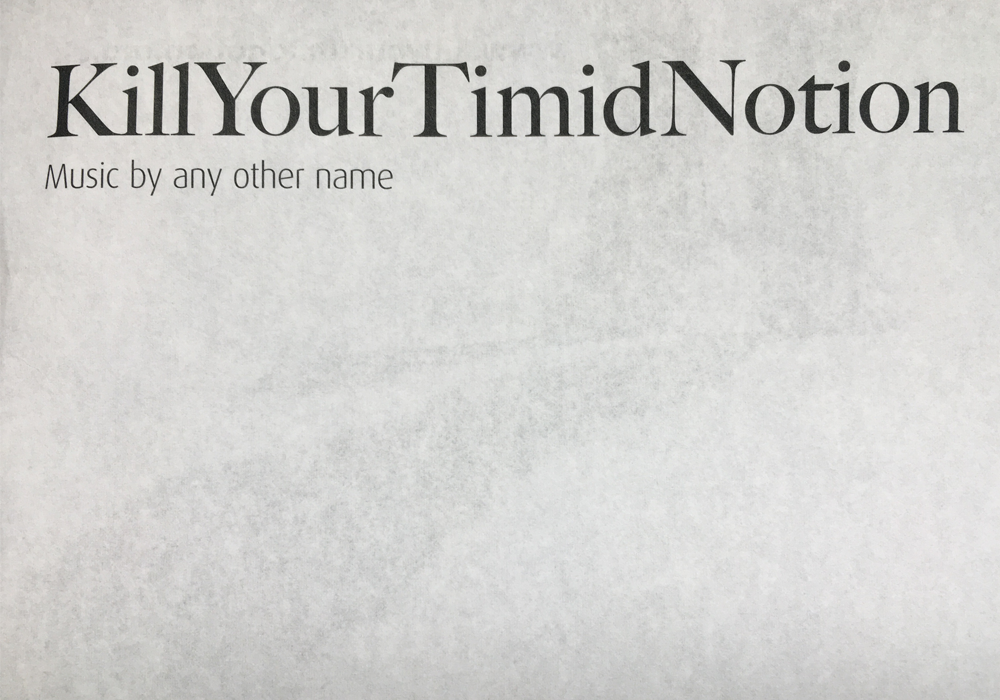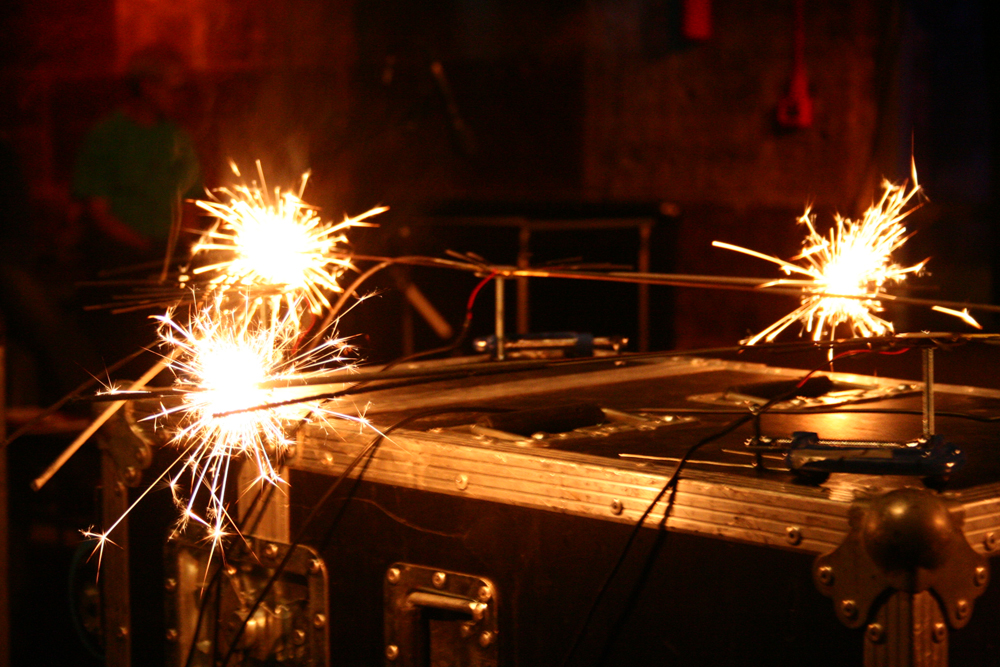
Lethe
Kiyoharu Kuwayama
A performance for dry ice and four specially constructed steel tables, each one heated by a single candle until searingly hot.
Arika have been creating events since 2001. The Archive is space to share the documentation of our work, over 600 events from the past 20 years. Browse the archive by event, artists and collections, explore using theme pairs, or use the index for a comprehensive overview.

A performance for dry ice and four specially constructed steel tables, each one heated by a single candle until searingly hot.

Instead of the one-way monologue of normal performance, what would be the result of an actual collective dialogue? Where would it go?

Two bottomless brunch writing workshops—with readings—speculating the relationship between space, infrastructure, technologies and sex.

In this workshop we will imagine ourselves as time travellers from a glorious and chaotic neurodivergent-led future.

Beatriz will explore her thinking, on film as translation, plural subjectivity or land-based militancy. Discussion will centre around her work Oriana and its companion piece Oenanthe, which will be screened in full.

Ten short intimate one-on-one conversations with Robert Softley Gale – We all want to see ourselves reflected in the world around us—in society, in art, in culture… in porn?

A festival hewn from passions for experimental music, film and visual art and for a passion in figuring out how they can relate to, cross-fertilise and inspire and each other.

In 2008 we toured our Kill Your Timid Notion festival of experimental sound and image to London, Bristol and Glasgow, bringing audiences a taste of the previous 5 festival editions.

During their time in Scotland for Instal 06 Dave Dove, Bhob Rainey and Greg Kelly did some improvisation workshops and performances in and around Glasgow.

A performed filmic conversation on queer and black world making.

A cinema of the mind, a film to take place in the viewers’ imagination(s).

Sonic ‘observations’ of the world, through micro recordings on a tiny scale and transformed into something musically compelling.